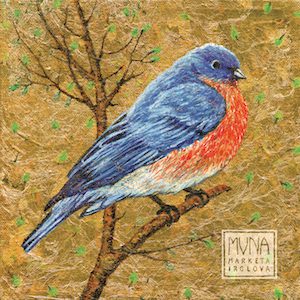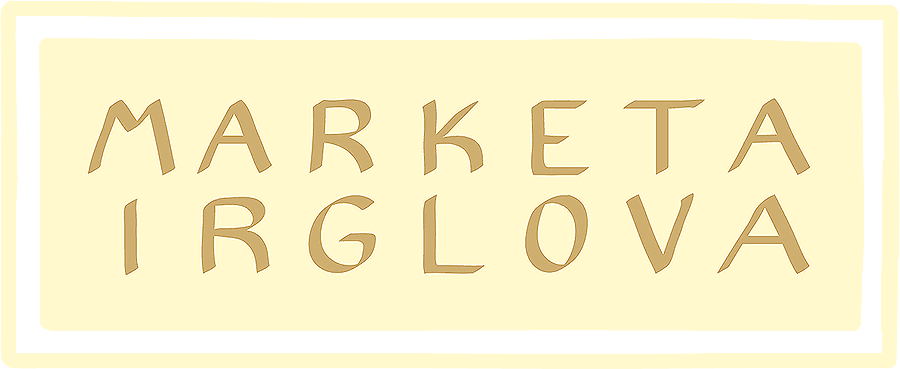 We’re elated to announce that Marketa’s second solo record, MUNA, will be available on 23rd September 2014 worldwide on ANTI Records and she will be touring North America and Europe this Fall.
We’re elated to announce that Marketa’s second solo record, MUNA, will be available on 23rd September 2014 worldwide on ANTI Records and she will be touring North America and Europe this Fall.
Muna means “to remember” in Icelandic. Remembering that which has been forgotten is a recurring theme throughout this record. “I had been to Iceland for the first time with the Swell Season,” Marketa says. “I fell in love with it then and was sad to leave, although I knew someday something would bring me back. I am inspired by the open space, the wilderness of the nature, the strong energy coming from the land. There is a harmony, a balance, something that allows for a freer flow of creativity. It is easier to be one with oneself and one with everything and everyone around. This makes for better art, in my opinion.”
Click through to learn more about MUNA & to hear a song from the album called This Right Here.
—–
“Take me to the point of my creation/Take me where my life began/I was born into this world/What had I intended then?/What had I chosen for a destiny?/Am I living it right now?/I have this feeling I’ve forgotten something/Tell me…”
These are the first lines of ‘Point Of Creation’, the opening track on Marketa Irglova’s second solo album. Entitled MUNA (‘remember’ in Icelandic, a recurring theme throughout the eleven songs), the collection was written and recorded in Iceland, the Czech singer-songwriter’s new base of operations.
“I had been to Iceland for the first time about four years ago to play a show with The Swell Season,” she recalls. “I fell in love with it then, and was sad to leave, although I knew someday something would bring me back. When a friend of mine recommended a studio in Iceland for recording my second album, I didn’t hesitate. I am inspired by the open space, the wilderness of the nature here, the strong energy coming from the land, and I am comforted by the people who seem so at one with it. There is a harmony, a balance, something that allows for a freer flow of creativity. It is easier in such surroundings to be one with oneself, and one with everything and everyone around. That elevates one’s consciousness and makes for better art, in my opinion.”
MUNA is an album that takes the Oscar-winning singer’s music further into the realm of the ethereal. If her debut ANARexplored the dynamic of intimate personal relationships, the new record is a document of spiritual searching. Written over the course of a year, and recorded in six months with producer/engineer Sturla Mio Thorisson, it utilises full choral, string and percussion sections, plus guests Rob Bochnik (The Frames), Iranian daf player and vocalist Aida Shahghasemi, and Marketa’s own sister Zuzi on backing vocals. All told, the album’s cast-list runs to some 27 players.
“I think the key to working with other musicians is finding a balance between giving them direction and allowing them to bring their own ideas,” Marketa says. “With the vocal arrangements, I would have an idea of what I wanted the parts to sound like, but I would not prepare upfront. Rather, I would start with basic harmonies by singing to the others what I wanted and asking them to join in. From there we would branch out to other arrangements, and as they were all wonderful singers and quick learners it was a pretty smooth process, like a snowball getting bigger and bigger as you roll it.”
In keeping with the choral textures, MUNA is an album of saints, angels and psalms (the Lord’s Prayer makes an appearance in ‘Without A Map’). The songs were, admits Marketa, partly inspired by Andrew Lloyd Webber’s and Tim Rice’s rock opera Jesus Christ Superstar.
“Both lyrics and music are spectacular,” Marketa says, “and the exchanges between characters are so seamless, one forgets one is listening to a song and not a conversation. It has inspired me to write my own songs as conversations, and this is especially true on this album, which has a spiritual side as well as practical one. Spirituality should not be associated with obscurity and an ‘out of touch with reality’ state of mind.”
She was similarly inspired by Neale Donald Walsch’s multi-volume Conversations With God, “a trilogy of books written by a man who claims he was conversing with God by writing questions on a notepad and receiving answers in the same way. The questions ranged from very simple to very complex issues. For me it’s irrelevant if it was really God answering, or the writer himself, for the truth of the matter is the material born out of these conversations is profound and timeless. I believe God speaks through us in many ways, beginning with simple acts of kindness and ending with pieces of art that inspire millions for generations. All that matters is to try to get in touch with that part of ourselves and trust that which comes forth. I tried to do that with this record.”
Elsewhere, ‘Fortune Teller’ exhibits duende airs and is like nothing Marketa’s done before. “It is a middle-eastern influence which I had been exposed to during my time living in New York with Iranian people and playing with an Iranian percussionist and singer,” she explains. “The lyrics are also inspired by Iranian literature, in particular a book called The Conference of the Birds (by 12th century poet Farid ud-Din Attar). It is a culture I am very fascinated with and inspired by, and the upbeat nature of the song is something I’d love to do more of in the future.”
Overall, MUNA’s musical and lyrical themes take solace from the smallness of individual concerns when contrasted with the scale of the universe. It is the result, Marketa says, of a process of growing up, of “going through difficult times and getting lost and feeling left alone to find my way back. Turning to something – or someone – bigger than me to make some sense of things that did not make sense at all. Feeling encouraged to zoom out and widen the lens through which I look at the world – from personal to worldwide to eventually universal. It is much easier to feel victimized when living in the micro-cosmos of our personal dramas. But once we open our minds to the macro-cosmos that we are part of, the issues that seemed so big start to seem small, and that is the beginning of us rising above them and changing our lives for the better.”
